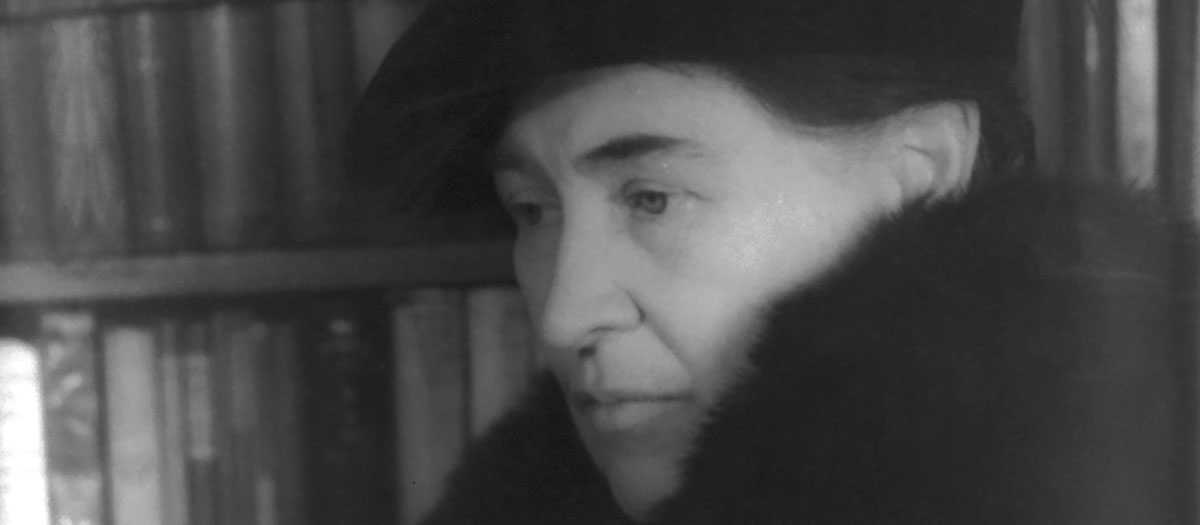Shively & Willa Cather

English professor has role in nurturing American novelist’s continuing legacy
There are only two or three human stories, and they go on repeating themselves as fiercely as if they had never happened before.
— Willa Cather (1873-1947)
Steve Shively knows all such stories, first-hand. He taught in a high school for 10 years. Enough said.
Also, he’s a native of Lincoln, Neb., just a couple of hours from Red Cloud, the birthplace of famed America novelist Willa Cather herself.
As a teacher in Nebraska, the Willa Cather he introduced in class shared the same secrets young students do now, once they look past the feathery, old-school hats in her sepia-toned portraits. She understood their bewilderment about grandparents who were inexplicably drawn to Nebraska’s flat plains and then spent their lives working themselves to death.
And she proved the perfect retort to the familiar teenager’s complaint: “No one has ever come from here who amounted to anything.”
Now, we can congratulate Shively, a professor of English, for his role in creating a permanent home for the memories and memorabilia of the woman who gave us such American classics as O Pioneers! and My Antonia. In the new National Willa Cather Center in Red Cloud, memorabilia shares space with the world’s largest collection of research about Cather. The new climate-controlled archive-slash-museum-slash-teaching space was built by the Willa Cather Foundation, which counts Shively among its Board of Governors.
The grand opening was in June. But the good vibes continue for Shively. He still happily relates his experience with Laura Bush, keynote speaker at the dedication.
Bush, a former school librarian and confirmed Cather fan, was a natural for the role. In accepting the invitation, said Shively, the former First Lady responded, “You have two things I love: books and prairies.”
And, indeed, she requested her car stop at the Willa Cather Memorial Prairie. Shively remembers, “She’s dressed in her fine dress to give the keynote speech. But she just gets out and starts walking. She walked a good mile out into the prairie.” (Mrs. Bush, that is, and a few Secret Service companions).
Bush next asked to tour Cather’s childhood home, which has been lovingly restored by the foundation. At the new center itself in downtown Red Cloud – can you say a town of 1,000 residents has a downtown? – she spent some private time with the foundation’s Board of Governors.
“Her speech was fantastic, and it got us a lot of publicity,” says Shively. “She’s a sincere literary person who can talk about Cather’s books as someone who’s read them. And, she’s also a warm, personable person.”
Shively’s first real interaction with Cather was in that Cornhusker State classroom. Teenagers there, like everywhere, “often think they come from the middle of nowhere,” he said. “And they think, ‘No one has ever come from here who amounted to anything, and probably nobody ever will.’
“I wanted them to see that wasn’t true,” he said, “and also that the things of their daily lives – the land, prairies, the sky, even their grandparents — could be subjects of literature.”
Later, as a new University of Nebraska graduate student uncertain about what to study, Shively was assigned an office next to renowned Cather scholar, Susan Rosowski. “I’m no dummy,” he remembers thinking. “If the world puts me down next to this woman, I’m thinking, ‘Here’s a sign.’”
(Rosowski, who died in 2004, was also a mentor to Evelyn Funda, English professor and CHaSS associate dean.)
Shively followed up his dissertation, “Finding her Way: Willa Cather’s Poetics of Religious Rhetoric,” with attending meetings of the then-small Willa Cather Foundation. Founded in the late 1950s, the nonprofit foundation has purchased and restored properties associated with Cather and her characters. The new headquarters is adjacent to the now restored Opera House where Cather gave her valedictorian speech.
Shively joined the organization in 2002 and has since helped expand it to global status. In international seminars every two years — the next is in Northern Ireland, home to Cather’s ancestors — the newest Cather analyses and discoveries are presented.
From his seat on the foundation’s Education Committee, Shively thinks “it’s neat” to promote the teaching of Cather. He hopes to further share the author’s stories of the immigrant farmers who swarmed to Nebraska on the new railroad in post-Civil War years. They weren’t rich or interested in becoming rich, says Shively. And they toiled.
By the turn of the century when Cather began to write about the Nebraskan settlers, says Shively, “on the surface they’ve been beaten down by life. But she finds the inner spirit in them and their ability to create and make a world, a community and a family. My students loved all of that.”
Despite so much collected scholarship, Shively nods happily when asked if there are additional insights about Cather to be uncovered. “Absolutely,” he says.
For one thing, despite prohibitions placed by Cather herself on publication of her correspondence, the first collection of her letters was released in 2013.
Shively is working on a foundation project to digitize the collected letters. “Beginning in January an online version of all of her letters will start to come inboard,” he said, adding that it will take a couple of years before the project is completed and searchable.




